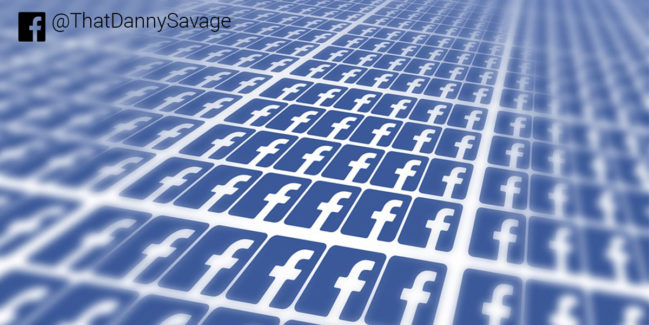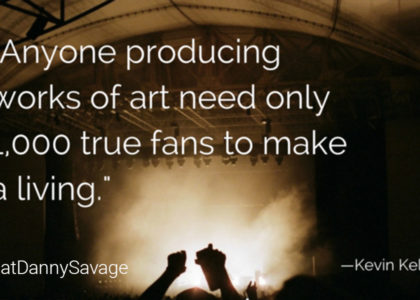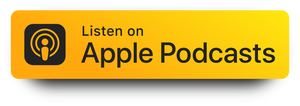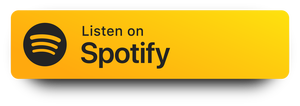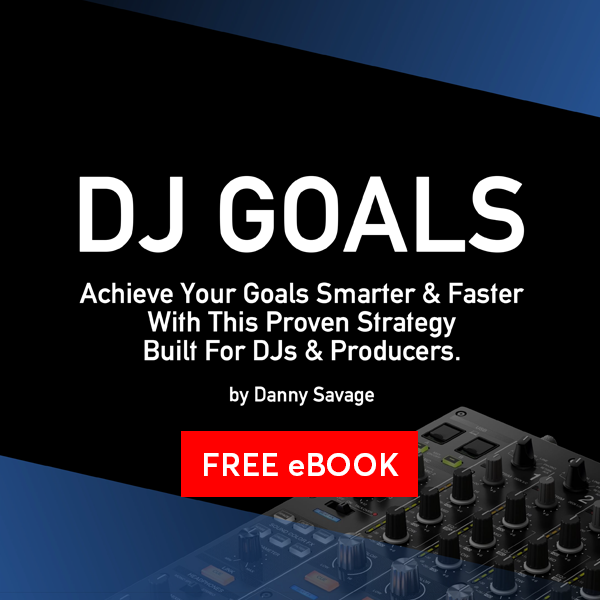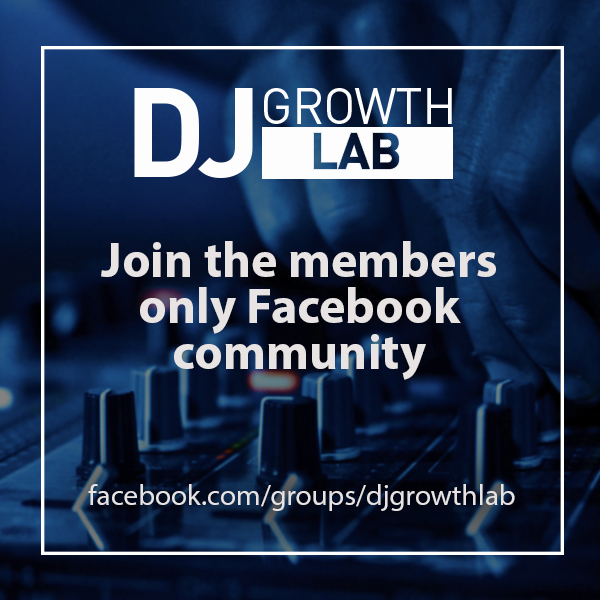Top tips for DJs on Facebook…
You may have heard the saying ‘content is king’. Social media is a space where you’re essentially fighting for real people’s attention, so making sure your content is better than anyone else’s is crucial. You simply won’t be able to make it as a DJ without good content.
To make things even more challenging, a lot of social networks (Facebook being the noteworthy one here) are intentionally declining organic reach. This is to encourage business owners to spend more money on advertising with them. It’s been this way for a while… here’s what facebook said back in 2013:
“We expect organic distribution of an individual page’s posts to gradually decline over time as we continually work to make sure people have a meaningful experience on the site.” Facebook
This highlights two things. Firstly, you need to create even better content than before. This content needs to have a strong organic reach. Secondly, if you’re a DJ and you want to be seen on Facebook, you might have to be a little more willing to spend money. I’m not talking £1000s here, but it’s worth setting around £30 per month for Facebook ads as an initial starting point.
Why people use Facebook?
It’s important you get your head around this. People use Facebook to… well… socialise. Studies have found that Facebook taps into our brain’s pleasure centre.
Another study found a strong connection between Facebook and the brain’s reward center, called the nucleus accumbens. This area processes rewarding feelings about things like food, sex, money and social acceptance.
So when we get positive feedback on Facebook, the feeling lights up this part of our brain. The greater the intensity of our Facebook use, the greater the reward.
Interestingly, researchers at Arizona University found that posting on Facebook makes people feel more connected and less lonely. The graph below shows an experiment where subjects report lower levels of loneliness after posting regularly on Facebook.
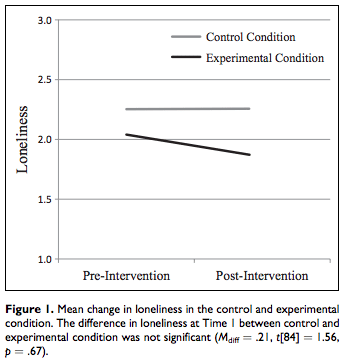
Another reason why people use Facebook is because they’re bored. And it’s up to you as content providers to entertain visitors, but we’ll get onto that later.
Importantly, we do not use Facebook as a marketplace for buying things. No one thinks “I need a some new studio equipment, I know! I’ll check Facebook”. Because of this, sales-y type content DOES NOT WORK on Facebook.
How Facebook engagement works:
Facebook uses an algorithm to determine how ‘sticky’ your posts are. If something is classed as ‘sticky’, then its organic reach will be increased and therefore fans will be more engaged with your posts.
Facebook uses these four factors to determine the stickiness:
- Likes
- Comments
- Shares
- Clicks
Think about all four of these factors every time you post on Facebook. If you want to create content that’s going to be seen by as many people as possible, you need to post content that will IGNITE ACTION.
If you post something that people like, but don’t take action on, Facebook will stop showing it to people.
Posting content that ignites action will save you money, as you won’t need to spend as much on advertising to get your content seen.
The 3 Pillars of Social Media Marketing
You need to think of social media marketing in 3 sections. This not only applies to Facebook, but all other social marketing channels (Twitter, Instagram, Snapchat, blogs etc)
ONE: CONTEXT
This is posting content that is social, remember this is why people are on Facebook. Make sure you’re conversational and friendly.
TWO: STORYTELLING
Each post you write needs to be in line with your brand. You need to share content that builds your brand or adds more story to your narrative.
THREE: NATIVE CONTENT
This is content that evokes emotion. It shows fans that you are a real person, not just a robot or a brand wanting to sell to you.
What is Non-Native Content?
Non-native content feels ‘fake’. From a DJ perspective, this might be content that feels as though the artist hasn’t written it, i.e. content hashed together by their label or manager who’s written the post.
Brands are the biggest culprits of producing ‘non-native’ content on social media. Here’s an example that sales-y and pushy from easyJet…

Non-native content comes across as lazy to me, anyone could have written it. You’ll see so many artists saying “go check out my new single here [LINK]”, but where’s the conversation and the emotion in that?
As I said earlier, people go onto Facebook because they’re BORED. Does the example above really entertain people? The answer is NO.
Here aresome examples of non-native content (for some of these I’ve used brands, just so you get the idea properly)…

This is an example of an emotionless post. Does this make me feel connected to the artist? It doesn’t even seem as though the artist is excited about playing at Egg! How can a fan connect with you if it comes across like you’re not enjoying what you do?
How to promote your music on Facebook
Use these ideas to increase the organic reach of your posts promoting your latest tunes…
- How did you make the song?
- What challenges did you face?
- What emotions did you want to provoke when listening to it?
- Are there any interesting stories around the idea itself?
- How did you come up with the idea?
- What was the inspiration behind it?
Giving people this information will help them connect with your idea so much more. Here are some examples…
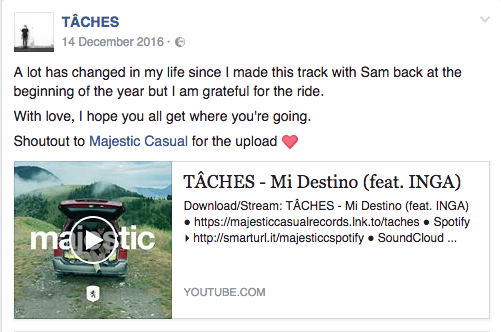
Above is an example of giving fans a little insight into the background of the musical idea. It also feels honest.
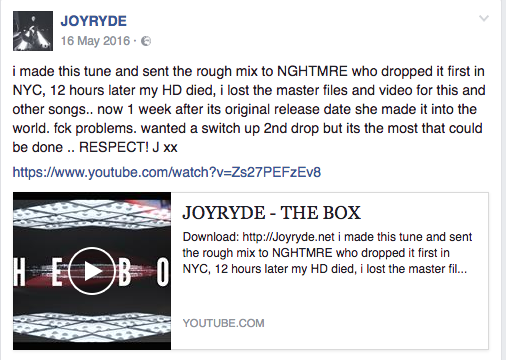
Above is an example of a cool story behind a record.
Other examples of good ‘native’ posts…
Better native content means you have to open up to your fans more. Here’s some examples:
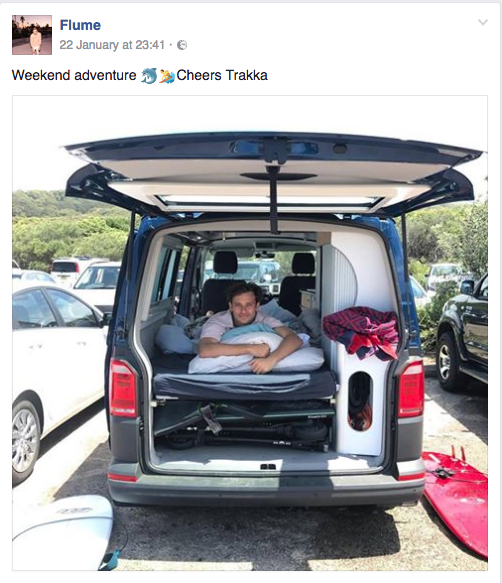
This is a post taken from Flume’s page. It’s nothing music related and just gives fans a bit of insight into his weekend.
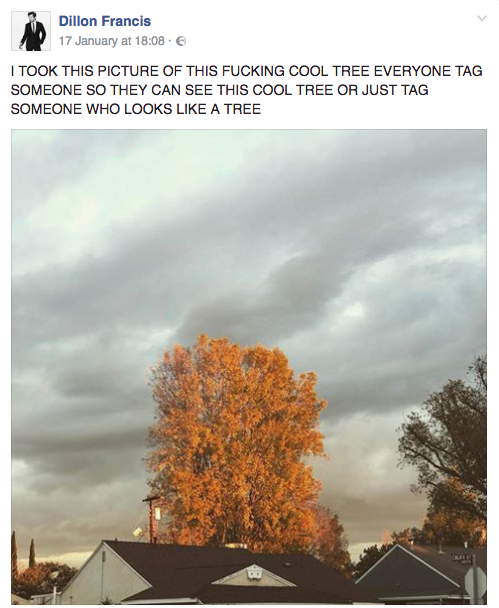
Dillon Francis doing what he does best.
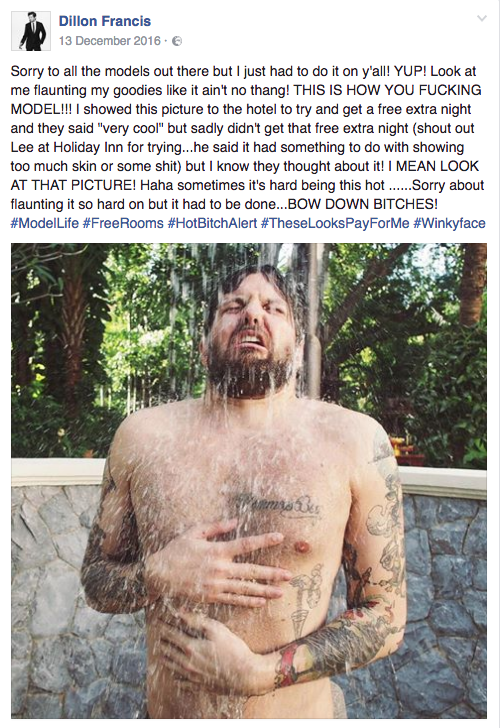
And again!

Snake cleverly addresses fans as part of his ‘army’, a nice way of making people feel part of his tribe.
Tell your fans about the good… and the bad times!
I’ve already said that showing your fans that you’re a real human being is hugely important. This means that you share the bad things happening as well as the good.
“It is the highest form of self-respect to admit our errors and mistakes and make amends for them. To make a mistake is only an error in judgment, but to adhere to it when it is discovered shows infirmity of character.”
Dale Turner
Here are some examples of DJs giving fans an insight into the lows of their careers…
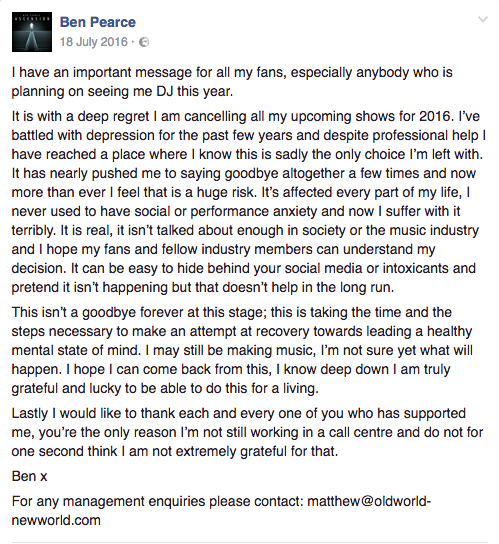

Four emotions your content should provoke
In a recent study it was found that “68% of respondents said they share to give others a better sense of who they are and what they care about.” As you can see, content is important to people.
If you want to get more shares, post content that makes people look smart, funny, compassionate or informed.
Your Facebook posts should provoke an emotion. When posting next, ask yourself, “does this post provoke any of these emotions?”
- Happy
- Inspired
- Compassion
- Connected
If your post doesn’t, re-think it.
Note – it only needs to pull on one of these emotions.
A DJ’s Guide to Facebook Images
There’s a bunch of different images you’ll need to get sorted for your facebook page. I’ve compiled this cheat sheet so you know exactly what images you need and the sizes they need to be.
There are 3 images you need to consider, these are:
- Profile Image: 180 x 180 pixels
- Cover images: 826 x 315 pixels
- Sharing images: 1200 x 630 pixels
See the cheat sheet below:
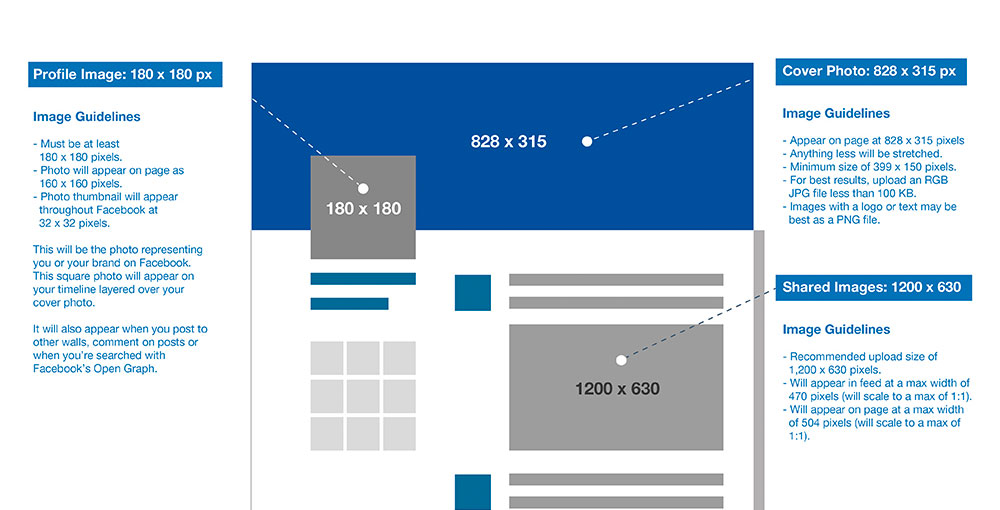
There is a lot to remember, but you’ll see from this article that a lot of good practice on Facebook is common sense. Don’t be the DJ that doesn’t make it because you didn’t have any common sense!

